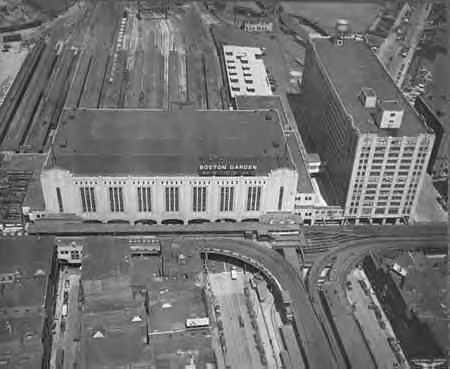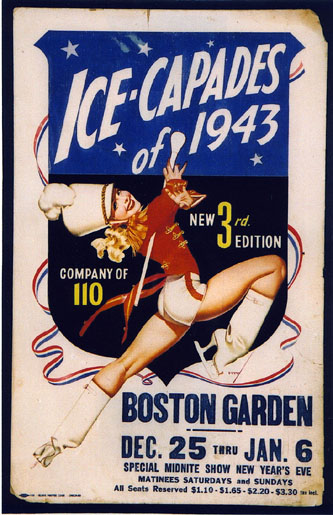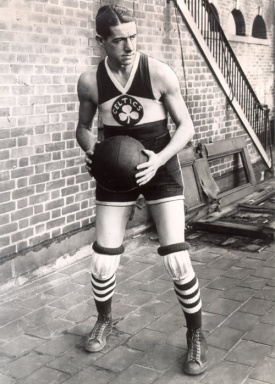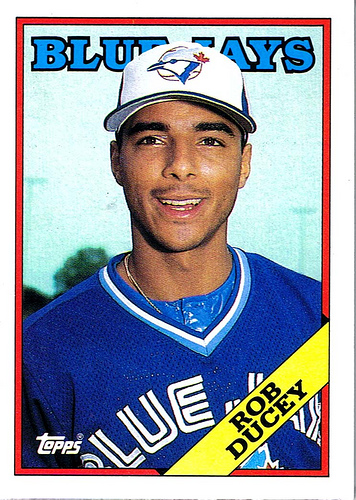Was Al Michaels Traded From ABC to NBC For, Among Other Things, a Cartoon Character?
SPORTS LEGEND: Al Michaels was traded from ABC to NBC in exchange for, among other things, the rights to a cartoon character. Read the rest of this entry »
SPORTS LEGEND: Al Michaels was traded from ABC to NBC in exchange for, among other things, the rights to a cartoon character. Read the rest of this entry »
Here is the latest in a series of examinations into urban legends about baseball and whether they are true or false. Click here to view an archive of the baseball urban legends featured so far.
BASEBALL URBAN LEGEND: The baseball that Barry Bonds hit to pass Babe Ruth’s career home run total ended up in the hands of a fan who was at the concession stand at the time!
Andrew Morbitzer was at the concession stand on May 28, 2006 getting his wife some pretzels as well as a couple more beers. He did not buy any Crackerjacks, but if he had, it would have been fitting, as he was about to be rewarded with perhaps the best prize you could ever get when going to the concession stand – he got the baseball that Barry Bonds hit for his 715th home run!
Read the rest of this entry »
SPORTS LEGEND: CBS aired fake bird noises during their golf tournaments. Read the rest of this entry »
Here is the latest in a series of examinations into urban legends about the Olympics and Olympians and whether they are true or false. Click here to view an archive of the Olympic urban legends featured so far.
OLYMPIC URBAN LEGEND: Olympic skiier Picabo Street was named after the game “Peek-a-boo.” Read the rest of this entry »
Tags: "Peek-a-boo", 1994 Winter Olympics, 1998 Winter Olympics, Downhill Skiing, Gold Medal, Picabo Street, Silver Medal, Slalom Skiing, Super G
April 27th, 2009 | Posted in Olympic Legends | No CommentsSPORTS LEGEND: Joe Theismann changed the way his name was pronounced so that it would rhyme with Heisman. Read the rest of this entry »
Here is the latest in a series of examinations into urban legends about basketball and whether they are true or false. Click here to view an archive of the basketball urban legends featured so far.
BASKETBALL URBAN LEGEND: The Celtics were once forced to play a game at midnight due to the Ice Capades!
Sometimes, it is interesting to note just how “current” of a phenomenon that professional basketball is. It is less than seventy years old. And only since the 1980s has it been a MAJOR sport, attention-wise. During the early years of the National Basketball Association, things were a lot different.
Walter A. Brown took over the management of the Boston Garden from his father in the late 1930s. The Boston Garden was originally developed as a boxing forum, but by the time Brown took over, their main tenants were the Boston Bruins. Brown was a huge fan of ice hockey, and had actually coached the US National team to a Gold Medal in the Ice Hockey World Championships in 1933.

After taking over the Garden, Brown became a bit obsessed with figuring out other uses for the space, and it became clear that most popular use for the space was in ice shows, ice skating/vaudeville shows. These shows became so popular that in 1940, Brown and a group of eight other Stadium owners in the Arena Managers Association decided to fund an endeavor by one of their fellow arena owners, John Harris (owner of Pittsburgh Gardens) to create a brand new ice show. This show became the Ice Capades. Brown and his fellow owners made a great deal of money from their investment in Harris’ idea.

In 1946, while still looking for another use for the Garden, Brown helped create the second professional basketball league, the Basketball Association of America, of which Brown’s new basketball team, the Boston Celtics, would be a part of. The BAA soon merged with another earlier pro basketball league to form the National Basketball Association in 1949.

In 1951, Brown bought the Bruins, as well.
In 1952, the NBA was not that popular, and Brown was losing money every season with the Celtics, but he was committed to the team, and kept it alive out of his own pocket for many years. Meanwhile, the Ice Capades were going strong all over the country. Brown actually kept the team afloat by selling off some of his Ice Capades stock and continually re-mortgaging his property. At this point, his interests were directly tied in with the Celtics – they HAD to succeed or he was going to go bust.
In 1952, his two interests co-mingled when Brown accidentally booked the Ice Capades on a day that the Celtics were due to play a home game.
So the enterprising Brown came up with a plan Read the rest of this entry »
SPORTS LEGEND: U2 effectively saved Canadian Football in Montreal. Read the rest of this entry »
SPORTS LEGEND: Fans of the Detroit Lions began rooting for the Detroit Red Wings during a particularly bad Lions loss. Read the rest of this entry »
SPORTS LEGEND: The Toronto Maple Leafs were the first professional team to retire a player’s number Read the rest of this entry »
Here is the latest in a series of examinations into urban legends about baseball and whether they are true or false. Click here to view an archive of the baseball urban legends featured so far.
BASEBALL URBAN LEGEND: Rob Ducey was traded for himself.
Baseball transactions can be awfully confusing sometimes, and perhaps never was it more confusing that the case of Rob Ducey’s journey from the Philadelphia Phillies to the Toronto Blue Jays and back to the Phillies in 2000.
Ducey was drafted by the Toronto Blue Jays in 1984. He played for the Blue Jays from 1987-1992.
Here’s his 1988 Topps baseball card…

Ducey played for a few different teams before signing with the Philadelphia Phillies in December 1998.
After a season and a half with the Phillies, on July 26, 2000, Ducey was not hitting very well and was traded to the Blue Jays for a Player to be Named Later, a practice baseball has where the player in the trade is, well, named later (this is usually done when the deal is for minor league players who cannot be traded before a certain amount of time has passed in their service time – so they are “traded” in July but not officially traded until September).
On August 5, 2000, the Blue Jays traded a Player to Be Named Later to the Phillies for second baseman Micky Morandini.
Well, on August 7, it was revealed that Ducey was the Player to Be Named Later.
So seemingly, Ducey was the Player to Be Named Later that went from the Blue Jays to the Phillies for Ducey. So he was traded for himself!!
Read the rest of this entry »